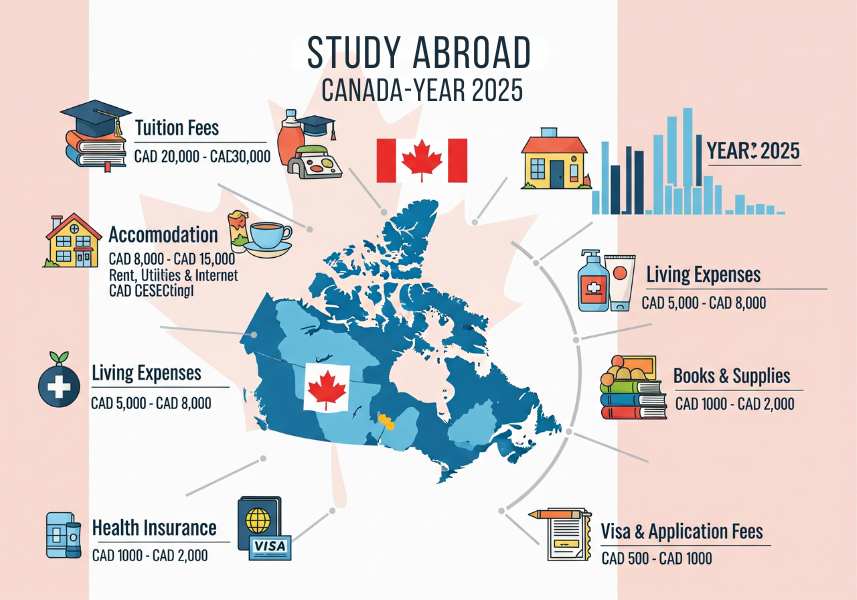“What is the cost of studying abroad in Canada?” This is the first and most critical question for most students and parents. While understanding the **cost of studying in Canada** is the starting point, building a smart and sustainable financial plan is the key to a successful journey. For a more comprehensive overview, you can check out our detailed guide on the cost of studying in Canada.
With experience advising thousands of families, SIEC has compiled this comprehensive guide. We not only provide the most up-to-date figures for 2025 but also reveal **5 “golden” strategies** to help you and your family optimize costs most effectively.
Below is an estimated average cost for one academic year (12 months) for international students, giving you an initial overview.

Note: These are estimated costs. Actual expenses may vary depending on the province, city, school, and individual lifestyle.
Tuition fees for **College** programs are often significantly lower than for **University** degrees. This is a smart choice for those who want to save on initial costs and focus on practical skills.
Fields such as **Engineering, Medicine, and Business** typically have higher tuition fees. Conversely, **Social Sciences, Arts, and Humanities** are generally more affordable.
Tuition fees in major provinces like **Ontario** and **British Columbia** are usually higher compared to provinces such as **Manitoba, Saskatchewan**, or the **Atlantic provinces**.
To apply for a study visa, the Canadian government requires students to prove they have sufficient funds. As of January 1, 2024, this amount has been raised to **$20,635 CAD/year** (excluding tuition and travel costs) according to the official announcement from IRCC. This is the minimum amount you must have in your account.

Instead of focusing solely on Toronto or Vancouver, consider cities with a lower cost of living like Winnipeg, Saskatoon, or Halifax. This choice not only helps save on **Canadian study costs** but also offers easier pathways for permanent residency through Provincial Nominee Programs (PNP).
Studying the first two years at a College with a transfer program (pathway) is an incredibly smart strategy. You’ll complete an equivalent curriculum at a significantly lower tuition rate, then transfer your credits to a partner University to finish your final two years and earn a Bachelor’s degree.
Many Canadian schools offer automatic entrance scholarships based on GPA. With our extensive network of partners, SIEC will help you find and apply for the most suitable scholarship programs. Check out testimonials from our successful students for more insight.
International students are permitted to work up to 20 hours per week during academic terms and full-time during scheduled breaks. With a minimum wage of around $15-17 CAD/hour, part-time work can cover a significant portion of your monthly living expenses. You can check the minimum wage by province on the Retail Council of Canada website.
A Co-op (paid internship) program is a double win. You not only gain invaluable practical work experience but also earn a substantial salary during your work terms, helping to offset **Canadian study costs** and providing a competitive advantage for future employment.
Studying in Canada is a worthwhile investment for your future if you have a clear financial plan and a smart strategy. Understanding your expenses and knowing how to optimize them will make your journey smoother and more sustainable. To build a compelling application, please refer to our guide on Canadian study visa application documents.
**What’s your next step?** Don’t let the numbers about **studying in Canada’s costs** overwhelm you. Book a free consultation today to have a SIEC expert build a personalized and optimized financial plan just for you.